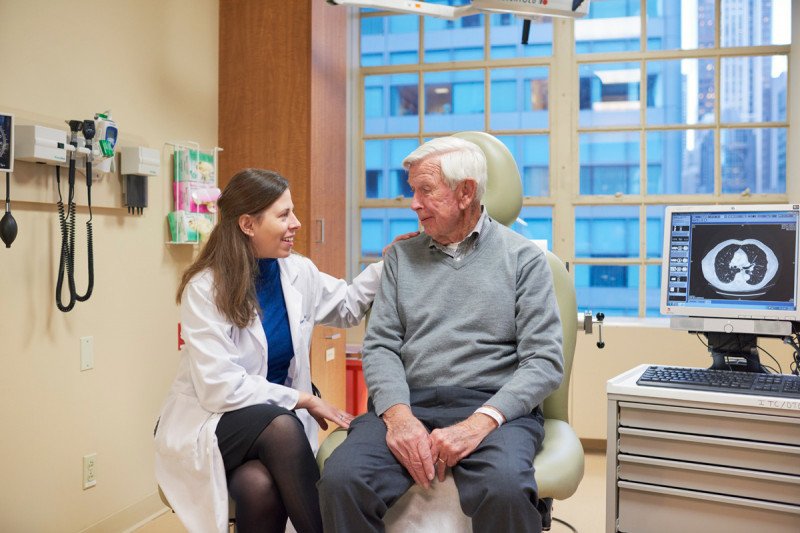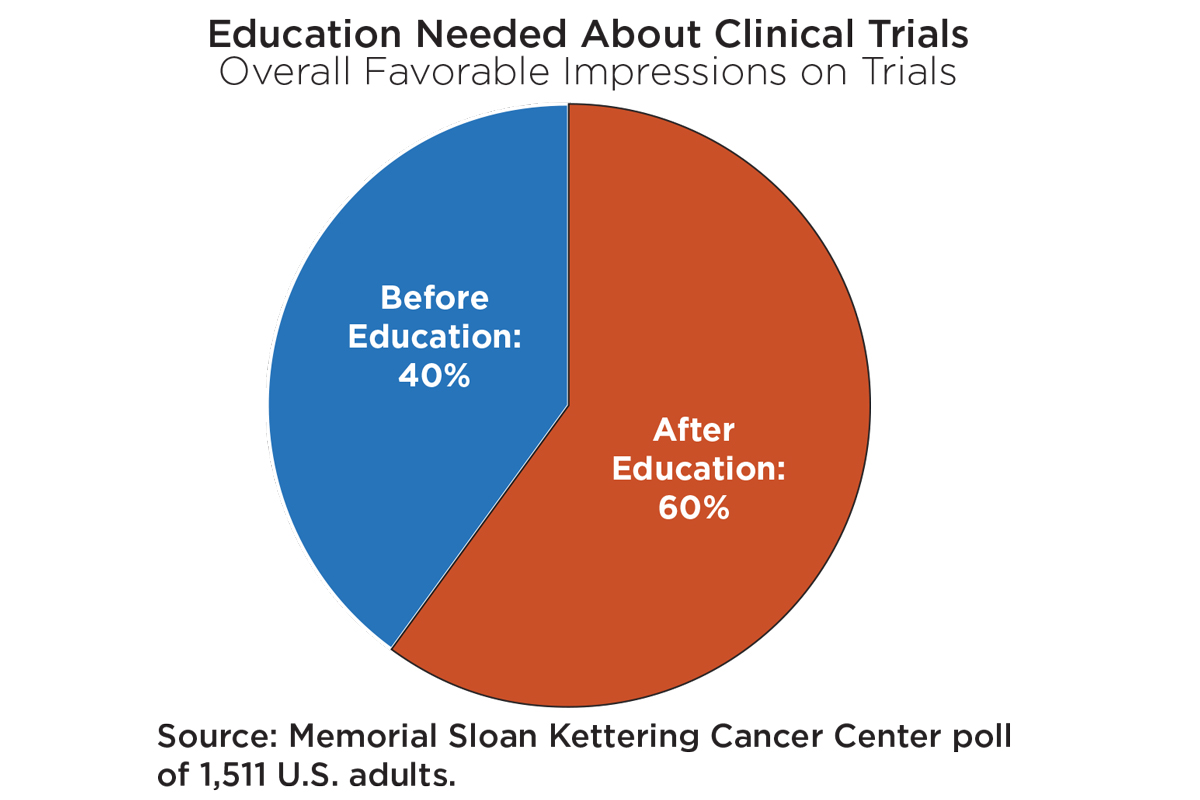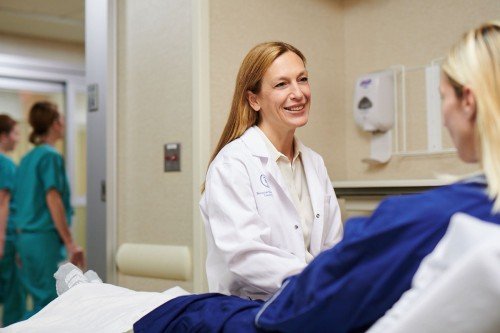
Nearly every cancer treatment available today exists because of a clinical trial. At Memorial Sloan Kettering, more than 900 cancer clinical trials are currently under way. Most people are aware of how necessary these research studies are and how they can lead to lifesaving breakthroughs — but are nevertheless unlikely to participate in them. In fact, studies have shown that only 4 percent of all patients enroll in clinical trials for cancer each year.
According to a comprehensive survey of more than 2,000 Americans, including nearly 600 doctors, conducted on behalf of MSK, just 40% said they have a positive overall impression of clinical trials, and only 35% said that they were likely to enroll in one.
These are sobering statistics given that the vast majority of advances in cancer research and treatment come as a result of clinical trials. In order to keep making progress toward ending the disease, these studies must continue — and patients must enroll.
“When it comes to advancing cancer care, clinical research is the rocket fuel for better treatments, more accurate diagnoses, and, ultimately, cures,” says MSK Physician-in-Chief José Baselga. “If this trend of low enrollment continues, we will face a crisis in cancer research and discovery. Further education is the key to participation and progress.”
The upside is that once the respondents in MSK’s survey were given more information about how clinical trials for cancer work, almost half said they would enroll. The challenge for healthcare professionals is to bust the myths and misconceptions surrounding cancer clinical trials and educate patients about how beneficial they can be — both for themselves and for future patients.
Lack of Knowledge Drives Low Enrollment

Study participants cited a range of concerns as barriers to participation in clinical trials, with worry about side effects (55%) and uncertainty about insurance and out of pocket costs (50%) topping the list. They also noted inconvenience of trial locations (48%), concerns about getting a placebo (46%), skepticism of the treatment (35%), and worries over feeling like a “guinea pig” (34%) as being potential reasons they wouldn’t participate in a trial.
Misconceptions Exist for Doctors Too
Adding to the challenge of low enrollment is that healthcare professionals themselves often fail to discuss clinical trials with patients early enough in their treatment or to explain clearly them about what participation in a trial entails.
While clinical trials are often available to patients who are in the beginning phase of their treatment, many physicians view them as a last-ditch effort for patients who have no further options; 28% of physicians surveyed said they consider clinical trials as “a treatment of last resort.”
“Failing to consider clinical trials at every stage of cancer diagnosis and treatment can represent a missed opportunity, primarily for patients, as well as for doctors and researchers trying to develop better therapies,” says Paul Sabbatini, Deputy Physician-in-Chief for Clinical Research at MSK. “It’s critical that we spread the word that there are options to consider early on.”
Education Can Increase Participation in Cancer Clinical Trials
Changing attitudes and increasing enrollment in cancer clinical trials primarily requires education, for patients and doctors alike.
“I really did not have any awareness of clinical trials at all,” says Jennifer Carrieri, who participated in a cancer clinical trial for multiple myeloma as a patient of MSK medical oncologist Pamela Drullinsky. Once she received information about the trial and felt comfortable that she knew what was involved, Jennifer says, “I was very comfortable enrolling… There was nothing to be afraid of.”
“Clinical trials offer our best thinking toward finding better ways to prevent, treat, and cure cancer,” says Dr. Sabbatini. “By encouraging patients to participate and educating healthcare professionals and patients alike, we can ensure that these critical research studies continue to move cancer treatment forward.”




